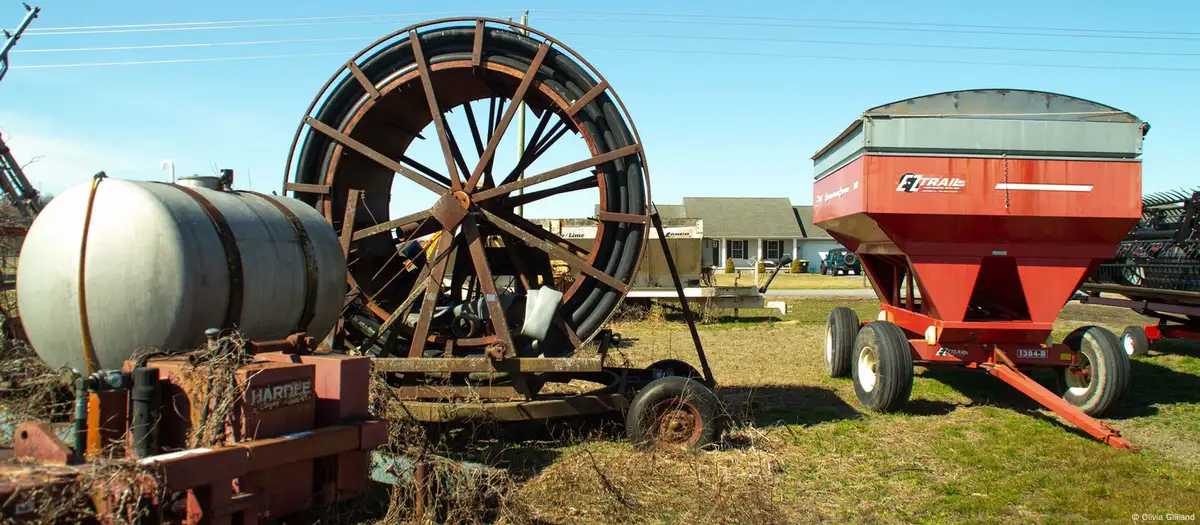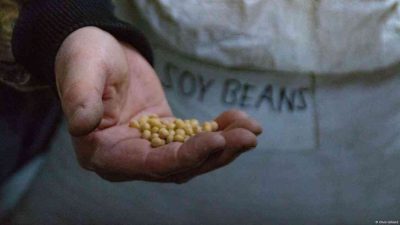
Trump administration’s supervision packet against important business partners threatens to cause market volatility and aggravate the fall of soybean exports and cereals that has been awarding since 2018.
It’s a Friday morning, and we are crossing the state of Maryland by car to talk to local soybean planters. United States President Donald Trump has announced plans to impose comprehensive overcrowding on several important business partners, including Canada, Mexico, European Union and China.
Passing the corn and soy fields, I can’t help but ask what farmers think of these developments. Will they be able to maneuver through the uncertainty of an unpredictable presidency?
For a long time, the New York tycoon has been supported by the American agricultural community, repeatedly citing an alleged understanding of its problems. This time, however, commercial wars and tariff disputes threaten the subsistence of many farmers.
Tariff’s tariff threats shake balance of US agricultural exports | Olivia Gilliand
I arrive at Greenwood, two hours driven by Washington, where I have been scoring with Richard Wilkins, who has been cultivating soy since 1973. It exports part of the product to global markets through the port of Virginia. As it is winter, your fields are empty.
The farmer argues that the US tried to lead by example by broadly opening their markets for imports around the world: “This example would expect other countries to do the same and give us access. If tariffs are needed to position us better in an open market and free competition in the rest of the world, I’m totally next to the president.”
Like other farmers, he “feels very strong” that Trump actually has “a great sympathy for the American farmer.”
“Hold on me”: How long?
Josh Messick, from the municipality of Sussex, is 27 years old and has been working since 12 in the family plantations, whose 485 hectares farm produces corn, soy, wheat and barley. He is concerned about the current market volatility: “It’s definitely a scary time. We don’t know if you want to close a contract [de venda] Corn now, or wait until the fall at the time of the harvest. I just have to trust that Trump will give us back. ”
Perhaps the total impact of trumpland trade measures will not feel until the next crop. In the short term, some agricultural products should be cheaper for the consumer if exports fall. On the other hand, corn, wheat and soy only represent a relatively small portion of retail food prices.
In his inaugural speech on January 20, in Congress, Trump claimed that agricultural imports damaged American farmers, and asked them to “endure with me” while he worked to protect them. Messick comments that he found it “weird” that the new president said this, and now wonders how long he will have to “endure the ends with him.”
“Our higher market prices are usually during the cultivation station, in May or June. So the question is whether we expect there, or need to sell the crop now. What if China decides that you don’t want to buy anything from us?”
He is not Maryland’s only soy planters concerned with losing his market share because of presidential policy. A colleague of his comments: “We hope to reach a certain balance, but Trump’s decisions make me restless. If we’ll have to hold on short -term losses, I hope the government will provide support.”
 US soy sales to China fell 75% in 2018 | Olivia Gilliand
US soy sales to China fell 75% in 2018 | Olivia Gilliand
To the taste of Trumpist instability
The republican agent has not yet announced any financial assistance for soybean planters, whose exports, specifically to China, have been falling for years.
According to the US International Trade Commission (Usitc), product sales to the Asian country fell 75% in 2018, when Trump triggered a trade war with Beijing. In all, US agricultural exports to the country fell from $ 24 billion ($ 138 billion) in 2014, to less than $ 10 billion in 2019.
Still, the White House has boasted the plan to introduce reciprocal commercial tariffs – which will take effect against the European Union on April 2. On his social Truth platform, Trump urged national farmers to “prepare to make a lot of agricultural products to be sold within the United States.”
According to Caleb Ragland, president of the American Soy Association (ASA), however, farmers have not yet recovered from the 2018 trade war. It emphasizes the importance of maintaining access to the Chinese market, warning that the sector is already confronted with “potentially heavy losses” by 2025.
Ragland emphasizes that he and his colleagues “cannot afford the load” of agricultural overflows: “We cannot be the scapegoat, which carries the thick pain for the good of all others.” Urging Trump to “negotiate proactively” with China and other countries, he adds: “Let’s try to go ahead and get the trade agreement he negotiated during the first term.”
Originally published by DW on 31/03/2025
By Rachel Nduati
Source: https://www.ocafezinho.com/2025/03/31/agricultores-americanos-temem-guerra-comercial-com-a-china/

